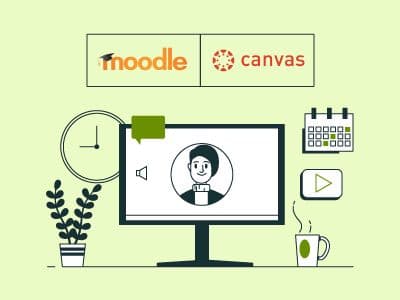Overview
LMS Collaborator brings learning management, a knowledge base, communication tools, and API integration into one flexible system for corporate training. While it lacks a mobile app, it supports onboarding, assessments, learning paths, reporting, and multiple content types in a single portal.
Be the first one to leave a review!
No review found
Starting Price
Custom
LMS Collaborator Specifications
Activity Tracking
Access Controls/Permissions
Attendance Tracking
Collaboration Tools
What Is LMS Collaborator?
LMS Collaborator is a cloud-based learning platform built for mid-to-large enterprises. It combines a training and assessment platform, knowledge base, communication hub, and API integrations into a single system. The platform supports employee onboarding, professional development, and assessments, offering a centralized hub for learning, organizational knowledge, and internal messaging.
LMS Collaborator Pricing
The LMS Collaborator cost is structured around the following three customizable plans:
- Standard
- Pro
- Assessment
LMS Collaborator Integrations
LMS Collaborator software seamlessly integrates with various applications, including:
- BigBlueButton
- Digital Samba
- Microsoft Teams
- TurboSMS
- Telegram
- Viber
Who Is LMS Collaborator For?
The platform supports diverse industries, such as:
- Pharmaceuticals
- Retail
- Hospitality
- Food service and manufacturing
- Telecommunications
- IT distribution
- Training academies
Is LMS Collaborator Right For You?
This software could be the ideal choice if your business needs secure, scalable learning and knowledge management tailored for growing teams. It earns trust by following GDPR and ISO 9001 standards for data protection and supports organizations from retail and pharmaceuticals to banking with strong compliance. Many clients praise its reliability, user-friendliness, and responsive support
Still not sure if LMS Collaborator is right for you? Our support staff is available at (661) 384-7070 to help you make the right choice.
LMS Collaborator Features
LMS Collaborator organizes diverse learning materials—documents, videos, presentations—into a unified training portal. It stores them centrally, ensures 24/7 access, and keeps content updated. Administrators can easily manage and assign resources to users, maintaining consistent availability and helping employees access learning anytime.
The platform supports both online and in-person workshop delivery. Administrators can schedule face-to-face sessions, webinars, or live training events, and integrate them into individual development plans and learning paths. This offers flexible delivery methods that align with real-time or blended learning schedules.
Users can enroll in structured, scheduled face-to-face classes within the system. These sessions are part of formal learning paths alongside other content, making it easy to blend synchronous classroom training with online modules for a comprehensive, instructor-led learning experience.
This feature enables robust assessment across different formats—quizzes, tests, surveys, and certification checks—within learning programs. It tracks learner performance, supports conditional paths based on results, and contributes to detailed analytics for measuring understanding and progress.
The software maintains a catalogue where users can browse and self-assign learning tasks and activities. Administrators categorize tasks to simplify discovery, empowering learners to explore optional courses and assignments aligned with development goals and interests.



